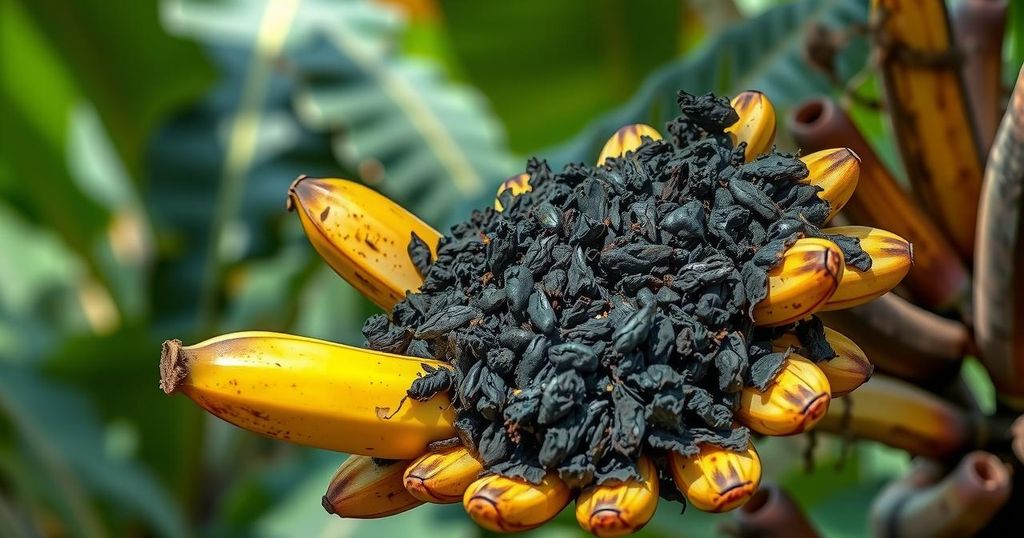In Cameroon, Steve Djeutchou converts banana peels into eco-friendly biochar to combat deforestation caused by charcoal production. He currently produces 3 tons monthly, with the potential to collect 40 metric tons of biomass daily, but requires additional resources to scale operations. Through his training school, he promotes renewable energy skills, while his work addresses environmental issues linked to charcoal consumption.
In Cameroon, where charcoal production poses significant environmental challenges, Steve Djeutchou has pioneered a solution to convert organic waste, specifically banana peels, into eco-friendly charcoal known as biochar. With a local supplier network capable of collecting approximately 40 metric tons of biomass daily in Yaoundé, Steve currently produces around 3 tons of biochar each month. However, due to limited resources, this output is insufficient to make a substantial impact on the alarming deforestation rates in the country, which has lost over 700,000 hectares of forest between 2002 and 2020.
Mr. Djeutchou has also established a training school for renewable energy, aimed at enhancing local skills in this essential sector. In his biochar production process, banana peels undergo collection, drying, and carbonization, culminating in a product that is both effective and affordable—priced at 250 francs per kilogram, significantly lower than traditional charcoal. This innovation not only reduces waste but also addresses the critical issue of deforestation driven by charcoal consumption, which amounts to 375,000 metric tons annually.
Additionally, Steve’s educational initiatives have successfully trained approximately 400 individuals in practical skills related to renewable energy. He envisions a future where the integration of renewable energy solutions bolsters economic development while combating climate change. Steve Djeutchou embodies the potential for change within Cameroon and beyond, laying vital groundwork for a sustainable future based on eco-friendly practices.
Cameroon, recognized for its extensive forest resources, faces alarming rates of deforestation primarily due to charcoal production. The loss of over 700,000 hectares of forest between 2002 and 2020 highlights the urgency of finding sustainable alternatives. Steve Djeutchou’s approach to converting organic waste into biochar not only addresses environmental degradation but also supports local economies by promoting renewable energy practices. His training institution furthers this mission by equipping individuals with essential skills, fostering a workforce capable of driving sustainable development in Africa.
Steve Djeutchou’s efforts to promote biochar as a sustainable alternative to traditional charcoal reflect a broader initiative to combat deforestation in Cameroon. By transforming banana peels into a valuable energy source, he addresses an urgent environmental crisis while simultaneously fostering local skills in renewable energy. His training programs and production processes lay the groundwork for significant change in how communities approach waste and natural resource management. As such, Steve represents a hopeful model for achieving environmental sustainability in the face of pressing climatic challenges.
Original Source: news.mongabay.com






